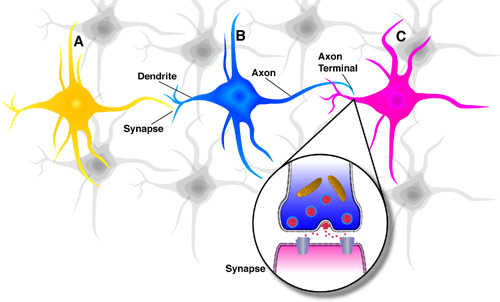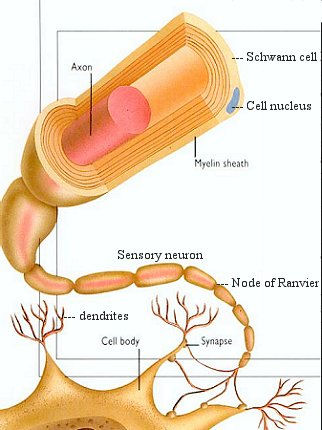When you first learn new stuff it is actually in the more superficial (think outer) layers of your brain. If you don't use it, it goes away. If you do or recall whatever it is more and more often and you are very interested in/motivated by what you are recalling, your memory actually moves deeper (think inner/lower) into the brain. So different parts of your brain light up for a memory you use often and care about AND those parts change over time. Once your brain decides something is really really important - that's when you go from gray matter to white matter in the brain.
Gray matter is brain cells and nerual connections - neurons, axons, dendrites, and synapses. On the following picture gray matter is shown as yellow, blue, and pink.

White matter is the fatty tissue (myelin) that wraps itself around neural connections that you use often. On the following picture you see the sheathing action made larger at the top of the image.

The myelin sheath makes a connection work faster than one without.
What does this mean for training? It means that the brain is paying attention to you when you do something more that you have a very strong interest in. (That last bit is important - if you're not interested or motivated in what you're doing - no sheath, no white matter,) So not only will important connections get white matter around them an important neuron cell could have 10,000 connections to other cells on its surface. And synpases can happen anywhere in the neural web.

So when you train often (let's say kicking) your multiple experiences are actually changing the location of your kicking memories to a place deeper in the brain, sheathing those connections in accelerating white matter, and increasing the number of connections between the brain cells related to kicking.
Do not only do you need to do your training often - you need to care about your training for your brain to think it important. So the better an attitude you have towards your training the better your brain optimizes your brain to perform the tasks you are doing.
This is a kind of a "well duh" thing. Obviously people are better at the things they like to do. But now there is scientific evidence as to why on a physiological level it is so powerful.
